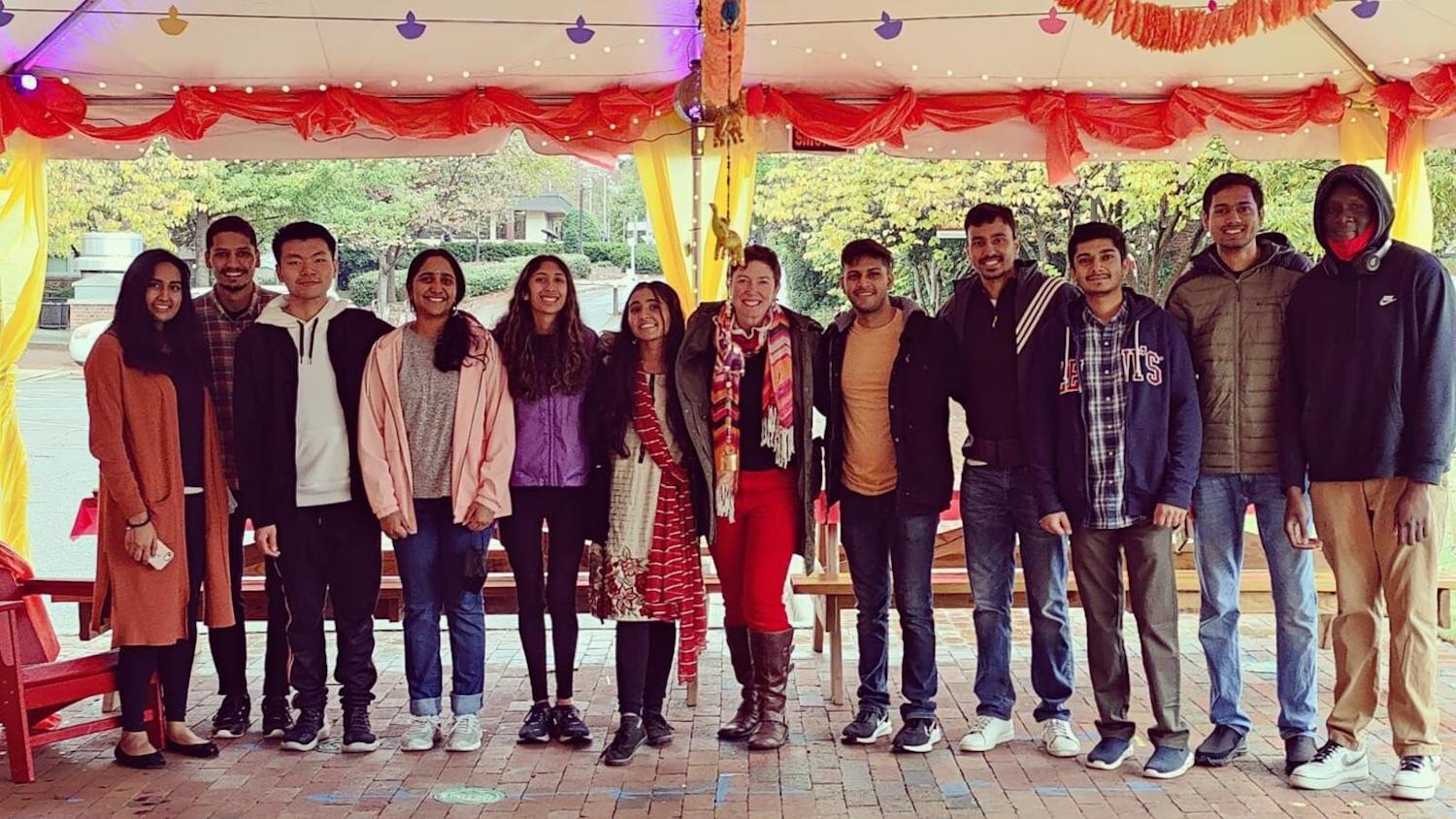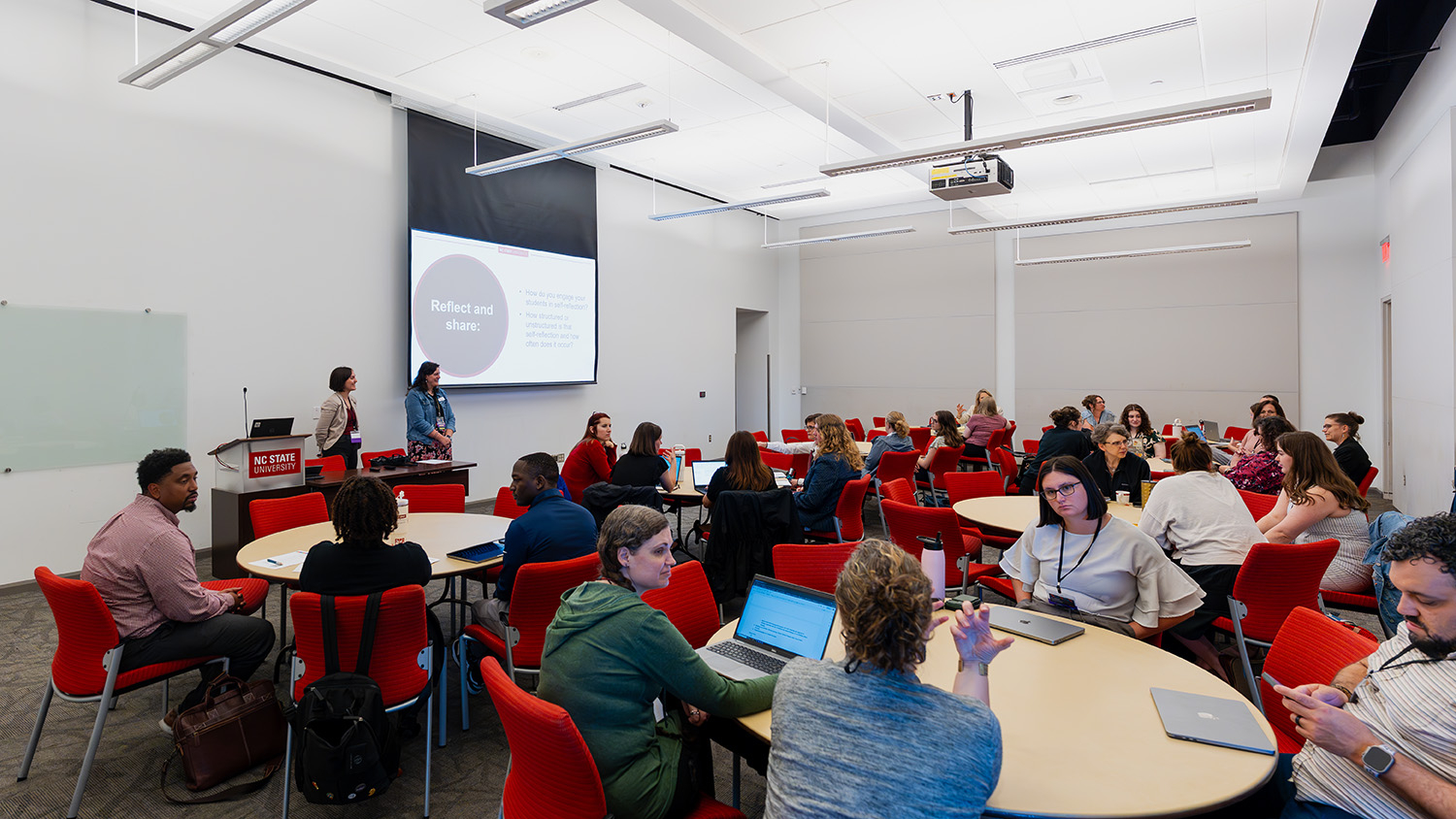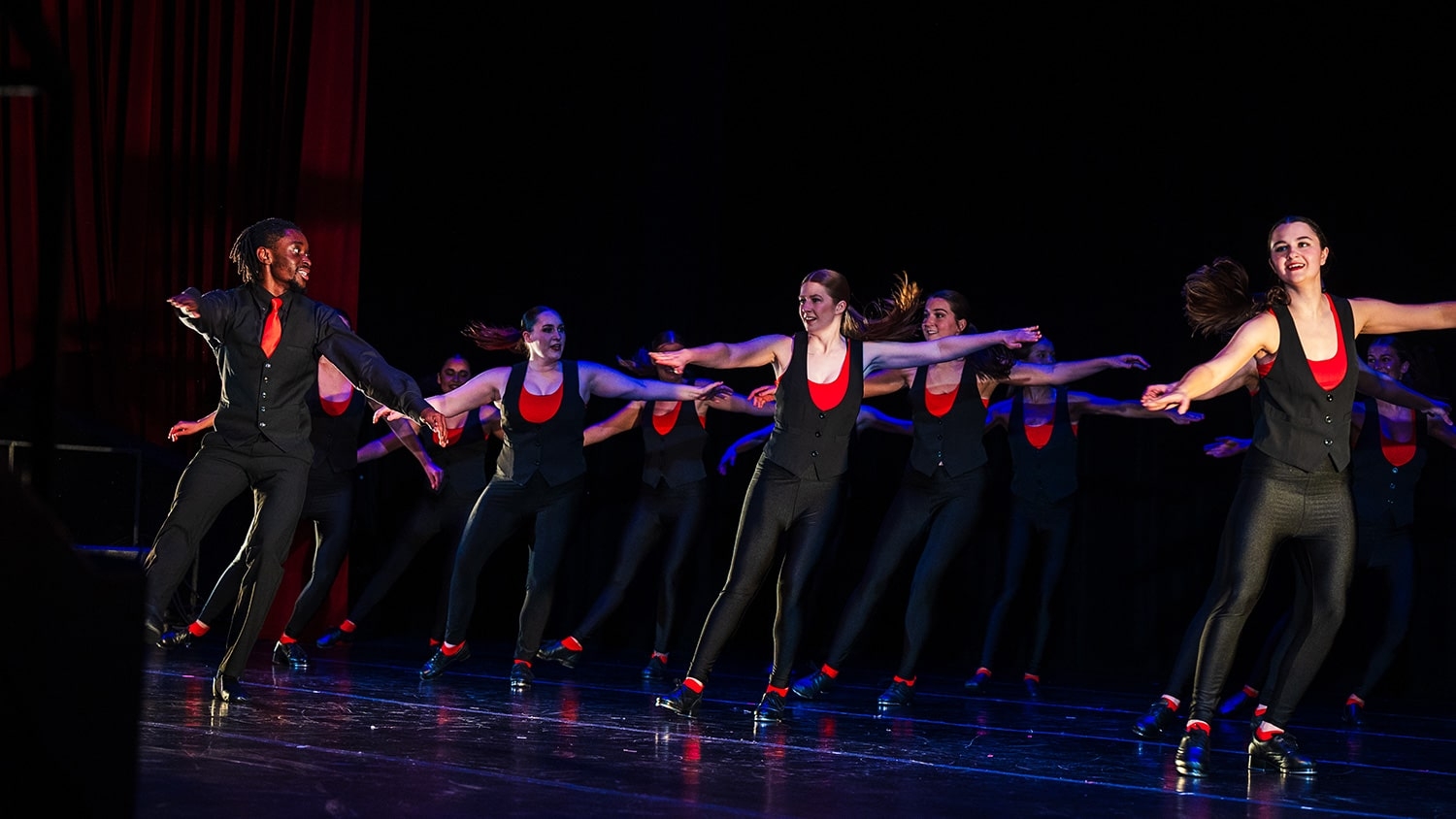This article was originally published on The Technician on Nov. 10, 2021.
On Thursday, Nov. 4, the Poole College of Management threw a Diwali celebration in the Governors Scott Courtyard, complete with a Henna station, dance performances and food.
To the average person, Nov. 4 might have seemed like the worst day to throw an outdoor festival, particularly Diwali, the festival of lights. The temperature was in the low 40s, it had been raining most of the day and at 4 o’clock the sun still hadn’t come out.
Unbothered by the weather, Priya Sharma, a second-year studying accounting, said she first learned about Diwali when she was younger. The tale follows a god, Rama, and his goddess wife, Sita, while they were in exile from their land in the middle of a forest.
“At some point, Sita was kidnapped by this 10-headed demon named Ravana and basically a war broke out,” Sharma said. “So for a while Rama and his brother Lakshmana are fighting and fighting to get Sita back.”
Eventually, Ravana is defeated and Rama, Lakshmana and Sita set their sights on returning back to their kingdom Ayodhya after a 14-year exile.
“Diwali is the day where the people lit thousands of candles so the brothers would be able to find their way back home and celebrate their return,” Sharma said.
For Sharma, Diwali holds a special place in her heart because it’s the first story she remembers being told. Even in the cold drizzling weather, the significance was not lost on her.
This story of Diwali is the last in a series of stories about Rama, all detailed in one of the most famous Hindu epics Ramayana, but it’s not the only one.
“We have a lot of celebrations during these winter months when the weather is usually gloomy and cold and we learn so many things through that,” said parent Devika Kathresal. “So in a season of dark and cold, we have celebrations of light and fireworks.”
Standing in line waiting for samosas and mango Frooti drinks, Devika Kathresal described Hinduism plainly.
“Even though there are thousands and thousands of gods, it’s all being created by humans,” Devika Kathresal said. “…We see God in everything. Each festival has multiple meanings and stories behind it to reflect and learn from; you aren’t just worshipping it.”
Every Hindu festival is a time to reflect and focus on something different and that reflection has a certain level of reverence to it, seen in the attire and occasional puja.
Devika Kathresal’s daughter, Richa Kathresal, was also there.
“Diwali is like Indian Christmas honestly, and it’s the most popular so you dress up the grandest for it,” Richa Kathresal said. “That typically means it needs to be new as well.”
Diwali is a week-long celebration, so not a lot of formal Indian attire was seen last Wednesday, due much in part to the weather, but also to the fact that many had already done their major Diwali celebrations the night or days before.
As the weather gets even gloomier and students remain scrambling from exam to exam, Diwali festivities couldn’t have come at a more perfect time.
Aptly put, behind all the dancing and music, was a canvas that read, “This festival of lights symbolizes the spiritual victory of light over darkness, good over evil, and knowledge over ignorance.”
Regardless of religious status, this sentiment is well worth celebrating, and no one can stay unhappy with a samosa in hand.
- Categories:



